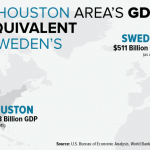News out of Brazil has gone from bad to worse. Despite efforts by President Dilma Rousseff’s government over the last few months to divert a recession, sliding commodity prices and corruption scandals have forced the hand of Standard & Poor’s to downgrade the world’s eighth largest economy from investment grade credit rating to “junk’ status.
Citing mounting political turmoil and the difficulties faced in tackling growing debt, the U.S. rating agency said it had no choice but to initiate the downgrade.
runaway commodity prices and reduced all-around austerity have sent the country into a recession
The S&P had awarded Brazil an investment-grade rating in April 2008, when the country’s economy was on the rise. However, runaway commodity prices and reduced all-around austerity have sent the country into a recession and all of Rousseff’s left-wing austerity efforts to cut spending, raise taxes and reining in inflation have failed to lift business and consumer confidence from record lows and have, instead, wrought havoc with her governing coalition.
Brazil’s rating was cut Thursday from BBB-minus to BB-plus, which denotes substantial credit risk.
The S&P downgrade came sooner than had been expected and is considered a major setback for Finance Minister Joaquim Levy’s attempts to shore up public finances.
2.44% Contraction
Brazil’s economy shrank 1.9 percent in the second quarter on top of a decline of 0.70% in the first quarter and analysts expect it to contract by 2.44% this year, marking the worst performance since 1990 when it contracted by 4.35 percent. The Central Bank said Tuesday that it expects inflation to hit 9.29% for the year, a revision from last week, when analysts predicted that Latin America’s largest economy would contract by 2.26% and inflation would come in at 9.28%.
The numbers meet the conditions of a recession which is technically defined by economists as six consecutive months of negative GDP. Analysts were forecasting a contraction of 1.97% until four weeks ago, but the numbers have been revised downward for the last two months.














Leave A Comment